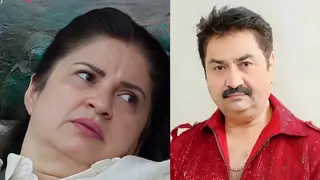Originally posted by: K.Universe.
Where a formal language such as Math is not used, I agree that interpretations tend to be subjective. And I suppose we can debate whether or not people are making a sound argument when analyzing a topic and giving their interpretations. But if we are doing that, we need to see whether the conclusions follow from its premises and whether they are consequences of its premises.
Take the following two paragraphs for instance (I am not picking on anybody, please understand that. I am only trying to make a point here)
- "Preet Bharara is no savior or crusader for victims of such fraud. He is a highly successful lawyer with a big ego and an appetite for fame. He has strong political ambitions and cherry picked a case that would paint him as a heroic protector of integrity in the American immigration system. Cracking down on immigration fraud is popular with the conservative base he wants to appeal to. He dove into the case in an overzealous manner and used the harshest methods within the legal limit of the law and situation.
- Preet Bharara may have been harsh and ambitious. He may have pushed his hand to create an extremely unpleasant diplomatic situation and insulted the sentiments of India - a vital US ally. However, he did play by the book and the law. Diplomacy and law don't always go hand in hand. USA has to do a delicate balance between the two. They have to maintain friendly ties with India, at the same time they cannot disregard legal by the book proceedings as it would reflect poorly if USA bends its own laws easily."
Let's assume that the soundness of the conclusions expressed here is valid - that US and India have to maintain friendly ties and that US cannot disregard the legal rulebook. Can we justify the conclusions based on the premises used? Can the accuracy of the premises be established? If not, why portray Bharara in a bad light in order to reach a set of conclusions whose soundness stands regardless of Bharara's actions? Yes, there is some kind of a universal truth to statements like "friendly ties are beneficial" and "legal rulebook has to be followed". But in order to arrive at those conclusions or establish the truth behind such conclusions, do we need to base our whole argument on uncorroborated declarations?
Why are you assuming that "US and India have to maintain friendly ties... " is the conclusion she was drawing? It seems like an objective to me, an objective one can reasonably assume the two countries have. If my interpretation is right, then in fact what she has makes perfect logical sense. So you see buddy, we again come down to interpretation and yours seems to be unreasonable..
the Bharara mention is also important. It gets to the root of motive, which is essential in any case. We have umpteen cases of individuals in authority in the US doing things that are not ethical/ sound even if legal. When i started this debate, i talked about ethics/ morality, not bizarre rule books and that by definition are subjective in nature. You have instead tried to make this out as a gross violation of human rights, which to me sounds very demonic. (Yes that's how strongly i feel about human rights violations, the real ones with people in poverty, not some jackasses who want 50K handouts for shit work they do)
in my opinion, yes, the US has rule books but they are programmed in a way that leads to bizarre results, and that depend on aspects like jury formation, on who is lobbying for/ against, on who the decision-maker is. US Presidents have successfully circumvented their own rules when it pleases them, juries have failed to convict on famous trials while other juries have convicted on minor aspects. The system is also so outrageously weighed in favor of the US prosecutorial team that one would cop a plea just to get them off one's back. So yeah, while you can argue that US prosecutors are playing by the rule book, you cannot do away with my contention that it's a system that's often designed to convict if someone does not cop a plea...
As for the idiot State Department, lesser said the better. Since 2005 they have revoked Modi's visa. The State Dept supposedly acted on a US law that bars them from giving visas to someone who "was responsible or directly carried out...". How did the State Dept ascertain that? Because a bunch of 43 idiot lawmakers in the US told them so? Whether it was George Bush invading Iraq on false evidence, or Ronald Reagan signing off on the non-nuclear arms in Pakistan, these idiots have been consistently wrong! So please, let's not make that redneck in the US Embassy as some character who'd never think of doing anything wrong! And that's what i was arguing for when it was that redneck versus Indian courts. Given so many precedents of the US State Dept acting peremptorily and wrong, it's too bad you were so dismissive of that viewpoint...































